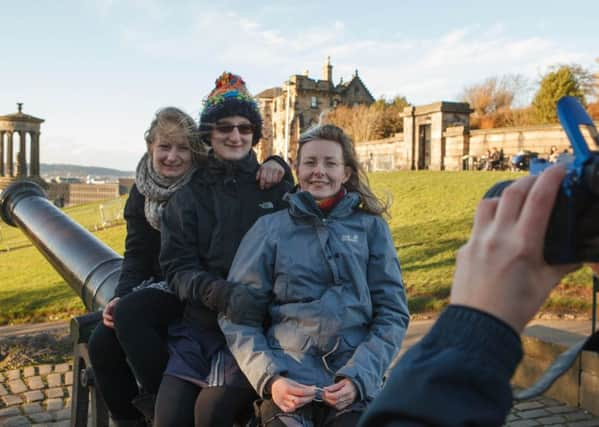Why Edinburgh needs a tourist tax '“ Professor Joe Goldblatt


The City of Edinburgh, since the advent of mass tourism in the 19th century, has been a world leader in the sector.
It has also led the way in most annual competitions for best city, best attractions, best friendliness, and many other metrics where a destination would want to be rated consistently as best in class since such measures began to be taken.
However, in one area, our city is a failure.
Advertisement
Hide AdAdvertisement
Hide AdThroughout North America, the use of a transient visitor levy (TVL) has been a standard best practice for more than 50 years.
This levy has not received any objection from either leisure or business tourists as it represents a small portion of the overall cost of their visit.
In the early part of the 20th century, many US states began to examine alternative funding for supporting the ever-increasing cost of tourism promotion and operations.
One alternative source of funding that was identified is known as “The Missouri Model” because the US state of Missouri decided to ring-fence a portion of their sales taxes collected from tourism-related businesses to be used solely for tourism advertising and operations.
Missouri far exceeded its financial targets the first year and by the second year was forced to place a cap on this income because the state literally could not spend all the money that was collected.
As a result of this new source of revenue, Missouri was able to significantly increase its funding for tourism promotion and operations and this not only increased the visitor numbers, but also improved their level of satisfaction.
By contrast, Edinburgh receives one of the smallest levels of funding for tourism in Europe per head of population. Glasgow’s tourism promotion budget is seven times the budget for Edinburgh.
Therefore, Edinburgh is constantly at a competitive disadvantage when it comes to attracting, delivering and retaining the best tourism funding model and this will over time lead to a decline in how visitors view our internationally recognised city.
Advertisement
Hide AdAdvertisement
Hide AdA recent survey by Progressive Partnership confirmed that 92 per cent of tourists said that they would have visited Edinburgh even if a Tourist Levy of £1 per room, per night were in operation.
Seventy-eight per cent said they would still come even if the tax was as high as £4 per room, per night.
Research also found that an equal number of visitors were in support of the levy as were against (47 per cent for, 47 per cent against).
These findings are similar to those studies carried out in Missouri, New York and other major tourism destinations.
Therefore, I believe it is critically important that the City of Edinburgh adopt a TVL to ensure that it remains best in class in tourism promotion and service delivery for the long-term future.
The rise in international tourism, especially from Asian-speaking countries, means that Edinburgh’s competitor destinations throughout Europe may soon have even more of the financial resources they need to significantly outspend and therefore out-promote Edinburgh to attract these lucrative visitors because they are currently effectively using the TVL model.
In the beginning of the 20th century innovative thinking such as the Missouri Model revolutionised the benefits of tourism for the state and elsewhere.
It is now time for Edinburgh to adopt a similar model which will insure that the Edinburgh tourism engine shall power ahead sustainably throughout the remainder of this century and beyond.
Advertisement
Hide AdAdvertisement
Hide AdProfessor Joe Goldblatt is the author, co-author and editor of nearly 40 books in the field of event management.
He served as chairman of the US state of Rhode Island’s Tourism Advisory Commission which has been recognised for a best practice in tourism promotion and management.